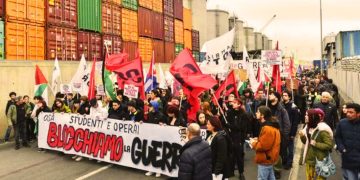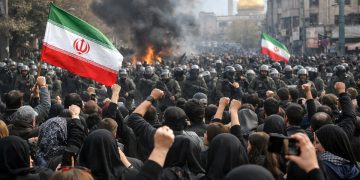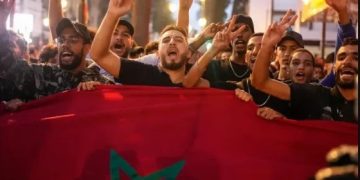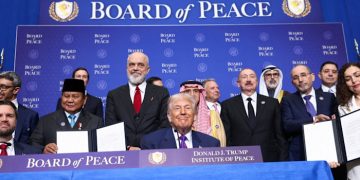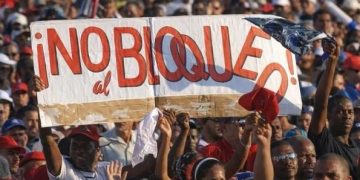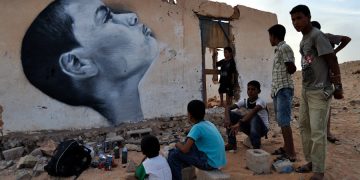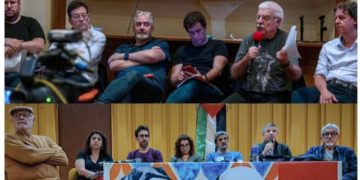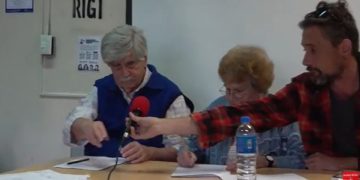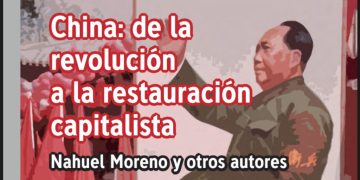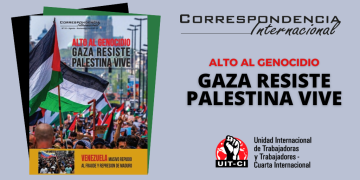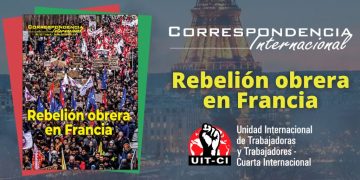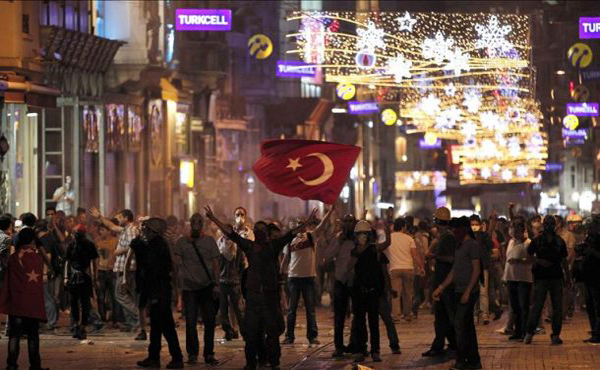 DECLARACIÓN DEL COMITÉ COORDINADOR UIT-CI/CEI
DECLARACIÓN DEL COMITÉ COORDINADOR UIT-CI/CEI
21 de junio de 2013 – (English Version)
Tras dos semanas de ocupación de la Plaza Taksim, y tras el desalojo continúa la resistencia. El Gobierno prepara una represión sistemática tras anunciar Erdogan que «considerará miembros de organizaciones terroristas» a cualquier persona que se encuentre en el Taksim o el parque de Gezi. El viceprimer ministro Bülent Arinç aseguraba: «Lo que se requiere de nosotros es acabar con las protestas que sean ilegales. Está la Policía y si no es bastante la Gendarmería.
Y si no basta, las Fuerzas Armadas. La ley nos da esa autoridad». Pero es justamente la legalidad de esa autoridad lo que el Gobierno ha perdido en estos días de intensa represión. Los muertos, miles de heridos, la detención de más mil manifestantes, de médicos acusados de socorrer a heridos en la plaza, la utilización de gases mostaza y de sustancias irritantes con el agua, son métodos brutales de impedir la protesta. Aunque consiga controlar la situación por el momento ya nada quedará igual.
Las movilizaciones han abierto una crisis política. Erdogan, a quien todo iba viento en popa: procesos electorales, interlocutor con la UE y el FMI y fiel aplicador de los planes de austeridad, que había abierto negociaciones con el PKK, hoy está contra las cuerdas. Incluso sus mentores internacionales han tenido que poner distancia ante tan feroz represión. Las disensiones en el seno del Gobierno y del partido sobre cómo responder la rebelión popular, debilitan Erdogan.
Esta situación llega cuando los efectos de la crisis económica empiezan a tener notables consecuencias sobre los trabajadores/as y las medidas del Gobierno por imponer reformas y hacer retroceder las condiciones de vida empiezan a encontrar resistencia. En un estadio cualitativamente superior a los movimientos indignados o del 15M, la exigencia de la caída del Gobierno, enlazó rápidamente con las primeras exigencias contra la construcción del centro comercial y el cuartel militar. Lo que hubiera permitido profundizar la crisis de gobierno hubiera sido fue que las simpatías dieran lugar a la irrupción en la escena de la clase obrera en la huelga general. El mayor aliado de Erdogan es la falta de alternativa desde la izquierda, pues la del retorno al kemalismo, es ya bien conocida y repudiada. Por ello es del todo imprescindible avanzar, como proponen los compañeros/as d Frente Obrero en una propuesta de frente de izquierdas para ir aglutinando esa fuerza necesaria.
Se estrelló el «modelo turco»
Pero las repercusiones de lo ocurrido saltan rápidamente las fronteras. En la vecina Grecia, reforzando la decisión de los trabajadores/as de la TV y la radio pública, ocupando las instalaciones y emitiendo contra la orden del Gobierno del cierre. Pero más aún, con la primera huelga general en solidaridad que convocaron los sindicatos y que permitió una gran manifestación de apoyo. Hoy el Gobierno ha retrocedido y atraviesa una profunda crisis política. Pocos días después en las calles de Rio de Janeiro, en Brasil, los jóvenes gritan «Se acabo el amor, Brasil va a virar a Turquía». Allí la chispa que hizo saltar el conflicto, la subida del trasporte público, pero la similitud de la reacción popular, con la juventud en primer plano, denota que hay razones más profundas que entroncan estos procesos.
La realidad es que millones de jóvenes están condenados al paro por la crisis capitalista, que los que consiguen trabajar lo hacen en condiciones de gran precariedad, que hay dificultades para obtener una vivienda digna y que cuando protestan, hay una creciente represión. Son ollas a presión dispuestas a estallar en algún momento, como antes lo hicieron en las revoluciones de Túnez, Egipto o Libia, y hoy está en la raíz de la revolución siria.
Pero donde la repercusión es más directa es en Túnez y Egipto, países en los que Erdogan estaba de gira cuando se alzó el movimiento en Taksim. Ante el curso de los procesos de la revolución en Túnez y Egipto, el imperialismo presentó el «modelo turco», el llamado islamismo moderado, como cauce para contenerlos y cerrar la situación revolucionaria. Así ocurrió con Ennahda y los Hermanos Musulmanes respectivamente. Se trata de una combinación del apoyo en la población de zonas rurales con la introducción de medidas islamizadoras, con un neoliberalismo drástico en lo económico, una aplicación sistemática de todas las instrucciones que llegan de los organismos internacionales (UE, FMI) de reducción del gasto público, privatizaciones, favorecer las actividades empresariales, a fin descargar toda la crisis sobre los trabajadores. Un tema central en el proceso revolucionario como el paro en la juventud se agravó y resurgió la represión como respuesta de los gobiernos a las demandas populares. En poco menos de un año volvimos a ver nuevas movilizaciones que reivindicaban la revolución esta vez contra los gobiernos islamistas.
Por ello no es casual las continuas giras y referencias de Erdogan para instruir y apuntalar los gobiernos islamistas en Egipto y Túnez. Turquía, miembro de la OTAN, pretendía acrecentar un papel de potencial regional. Taksim también dejado tocado el modelo y a la vez reactiva la lucha en Egipto y Túnez.
La responsabilidad de la solidaridad internacional es más necesaria ahora cuando hay que hacer frente a las ansias de venganza que Erdogan quiere hacer pagar a los detenidos o a las nuevas detenciones. Es imprescindible que se ponga en marcha una campaña internacional desde las organizaciones políticas de la izquierda, sindicales o sociales para dirigirse con comunicados y concentraciones ante embajadas y consulados, exigiendo:
¡Parar la represión!
¡Libertad de los detenidos!
¡Investigación y castigo de los responsables de las muertes y heridos!
Fuera el Gobierno Erdogan!
Comité Coordinador UIT-CI/CEI
Unidad Internacional de Trabajadores-Cuarta Internacional (UIT-CI)
Comité de Enlace Internacional (CEI, Lucha Internacionalista, del Estado Español-Frente Obrero, de Turquía).}
STATEMENT OF THE COORDINATING COMMITTEE IWU-FI/ILS
STOP THE REPRESSION, STRENGTHEN INTERNATIONAL SOLIDARITY! WE ALL ARE TAKSIM!
June 21, 2013
After two weeks of occupation of Taksim Square, and after the eviction resistance continues. The government is preparing a systematic repression after Erdogan announcing that anyone who is in Taksim or Gezi Park «will be considered a member of terrorist organizations». Deputy Prime Minister Bulent Arinc claimed: «What is required of us is to put an end to the protests that are illegal. There is the police and if not quite enough the Gendarmerie. And if not enough, the Armed Forces. Law gives us that authority.» But it is precisely the legality of that authority which the Government has lost in these days of intense repression. The dead, thousands injured, over a thousand protesters arrested, doctors accused of helping the wounded in the square, the use of mustard gas and water-irritants are brutal methods to prevent the protest. They may get control of the situation for the moment yet nothing will remain the same.
The demonstrations have opened a political crisis. Erdogan, to whom everything was going well: electoral processes, partner with the EU and IMF and faithful applicator of austerity plans, which had opened negotiations with the PKK, is now on the ropes. Even their international mentors have
had to to put distance at such ferocious repression. The dissensions within the party and government on how to respond to the popular rebellion weaken Erdogan.
This situation comes when the effects of the economic crisis began to have significant consequences for workers and the government measures to impose reforms and reverse the living conditions begin to encounter resistance. In a stage qualitatively higher than the Occupy or May 15 movements, the demand for the fall of the government quickly connected with the first demands against the construction of a shopping mall and military barracks. What would deepen the crisis of government was that the sympathies lead to the irruption on the scene of the working class in the general strike.
The greatest ally of Erdogan is the lack of an alternative from the left, since the return to Kemalism is already well known and rejected. It is therefore absolutely essential move forward, as proposed by the comrades of the Workers Front (İşçi Cephesi), with a proposal of a front of the left to start bringing together the necessary forces.
THE «TURKISH MODEL» CRASHED
But the impact of what happened quickly jumped borders. In neighboring Greece, reinforcing the decision of the workers of public TV and radio occupying the facilities and broadcasting against the Government’s closure order. But even more, with the first general strike in solidarity convened by the unions and which allowed a great show of support. Today the Government has retreated and is in deep political crisis. A few days later on the streets of Rio de Janeiro, Brazil, young people shout «Love is finished, Brazil will turn to Turkey». There the spark that blew up the conflict was the rise of public transport, but the similarity of the popular reaction, with youth in the foreground, denotes that there are deeper reasons that connect these processes.
The reality is that millions of young people are condemned to unemployment by the capitalist crisis; that those who do manage to work do so in precarious conditions, there are difficulties in obtaining adequate housing and when they protest, there is a growing repression. They are pressure cookers ready to explode at some point, as they did before in the revolutions in Tunisia, Egypt and Libya, and now are at the root of the Syrian revolution.
But where the impact is more direct is in Tunisia and Egypt, countries in which Erdogan was on tour when the movement in Taksim rose. In the course of the process of the revolution in Tunisia and Egypt, imperialism introduced the «Turkish model», the so-called moderate Islamism, as a
channel to contain and close the revolutionary situation. So it was with the Ennahda Movement and the Muslim Brotherhood respectively. It is a question of a combination of support in the rural population with the introduction of Islamizing measures with drastic neoliberal economics, a
systematic application of all instructions that come from international organizations (EU, IMF) to reduce public expenditure, privatization, encourage entrepreneurial activities, in order to off load the entire crisis on the workers. A central issue in the revolutionary process as youth unemployment worsened and repression resurfaced as government responses to popular demands. In little less than a year we again began to see new demonstrations that claimed the revolution this time against Islamist governments.
Therefore it is no coincidence the continuous tours and references of Erdogan to instruct and shore up the Islamist governments in Egypt and Tunisia. Turkey, a NATO member, sought to increase the role of regional power. Taksim has also touched the model while at the same time revives the struggle in Egypt and Tunisia.
The responsibility of international solidarity is more necessary now when it is necessary to face the avidity for revenge that Erdogan wants to make pay to the detainees or new arrests. It is essential to launch an international campaign from leftist political organizations, trade unions or social organizations to contact embassies and consulates with press releases and rallies, demanding:
Stop the repression!
Freedom of all the prisoners!
Investigation and punishment of those responsible for the deaths and injuries!
Out with the Erdogan government!
IWU-FI/ILC Coordinating Committee
International Workers Union – Fourth International (IWU-FI)
International Liaison Committee (ILC, Internationalist Fight Spanish state – Workers Front,
Turkey).








